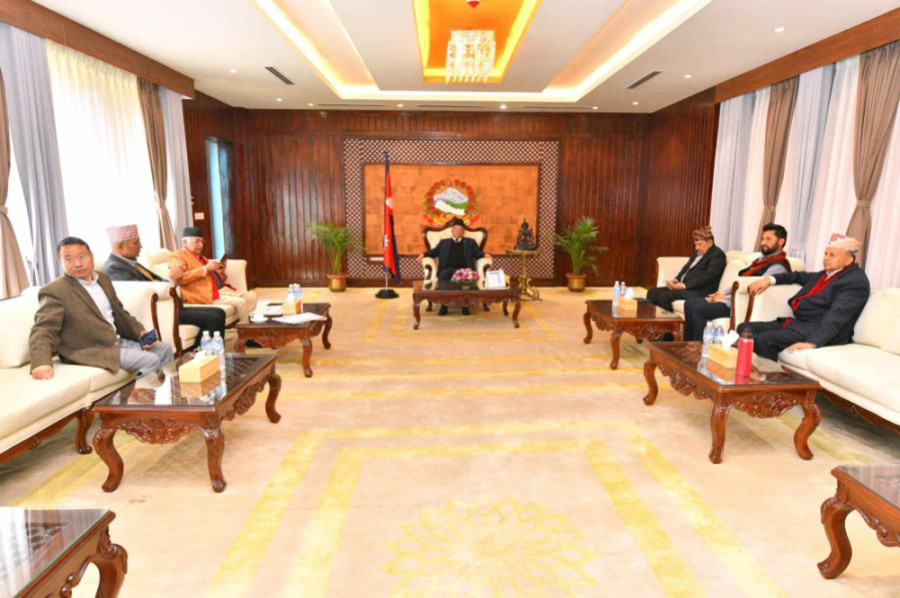Editorial
Left alliance, Chapter II
No government can succeed without a minimum level of trust and coalition culture.
There has again been a dramatic development in Nepali politics. Prime Minister Pushpa Kamal Dahal walking away from a coalition with the Nepali Congress and forging a new partnership with the CPN-UML has stirred national politics. Dahal has changed his allies for the third time in under a year and a half. His party fought the 2022 November polls under an electoral alliance with the Congress and other parties and emerged the third-largest in the House of Representatives. In December, he became prime minister with the UML’s backing but the left partnership quickly unraveled. Dahal and Congress President Sher Bahadur Deuba then revived the Congress-Maoist Centre alliance. No wonder there is a growing belief, in and outside the country, that Nepali politicians are forever ready to make or break governments.
Leaders are already blaming each other for the coalition’s collapse. Congress leaders say the prime minister invited this ‘unnecessary instability’ despite their ‘flexible proposal’ to give continuity to the coalition. They have accused Dahal of betraying the Congress even though the largest party had given its full support to the prime minister. Prima facie, the prime minister seems to have gotten impatient to work with the senior coalition partner. Dahal had his own complaints. The prime minister, ever since his address to the nation in December, had publicly reiterated his plans to replace some underperforming ministers. For this, Dahal had reportedly sought Deuba’s support. But then Deuba was not cooperating. In his over a year in office, Dahal had taken some bold steps, mainly in terms of investigating some big corruption scams. In the course, even key Congress leaders close to Deuba were brought to book, irking a section of the biggest coalition partner. With time, the list of irritants only got longer.
This is not the first time that a Nepali prime minister has complained about non-cooperation from coalition partners in selecting or replacing ministers and running the Cabinet. In the prime ministerial system, the executive head can't deliver without a certain level of autonomy in choosing their team and in the execution of their plans and policies. But then the prime minister also should be able to win the confidence of coalition partners. Neither of these was the case. It is nigh impossible to have a single-party government in the mixed electoral system the country has adopted. Therefore, it is vital that Nepal's political parties develop a modicum of coalition culture whereby the ruling partners can cooperate and ensure a minimum level of independence for the prime minister. They have to be able to work by maintaining a delicate balance even in complex situations. Without cultivating a minimum level of trust, no coalition can sustain itself for any time.
The country badly needs to reinvigorate the economy and expedite development activities. Political stability and policy predictability are prerequisites for that. So, the first thing the new coalition should do is assure domestic as well as international donors and investors that the changes in Singha Durbar wouldn’t hamper the country’s governance and development initiatives. A new Cabinet is only just starting to take shape. But even at this early stage we hope top heads in the new coalition are discussing political stability and ways to pull the country out of a prolonged economic funk.




 18.12°C Kathmandu
18.12°C Kathmandu














